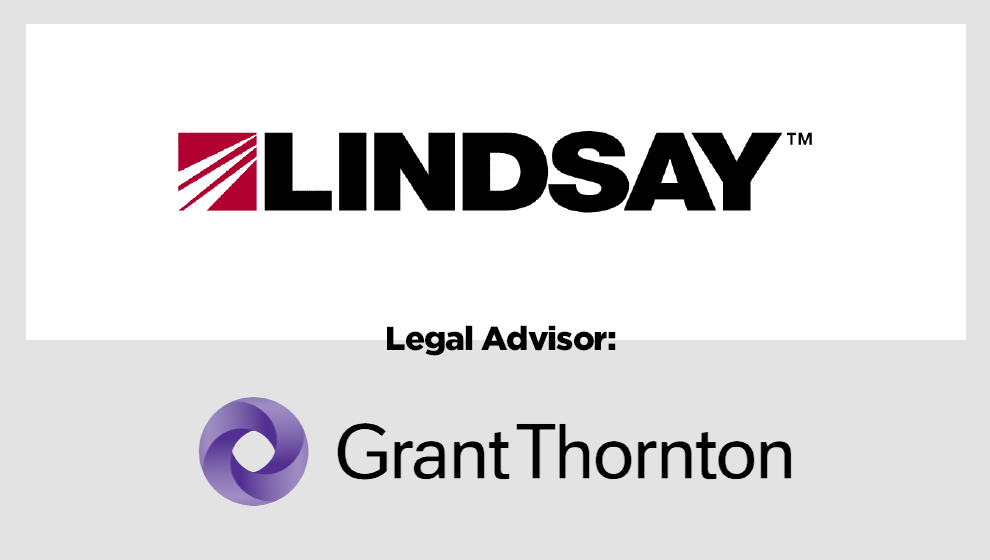Understand Your Rights. Solve Your Legal Problems


Lindsay Corporation has acquired a minority stake of 49.95% in Austrian measurement technology specialist Pessl Instruments. This deal leaves the option open to acquire the remaining share at a later date and was an investment built from an existing strategic partnership. Swiss Financial investor, Mountain Cleantech CO-invest as well as another minority shareholder sold to Lindsay Corporation.
Pessl systems are used in agriculture as well as an online platform, FliedClimate which can be used in all climate zones. The application can range to research, hydrology and meteorology to flood warnings.
The company’s headquarters are in Austris with subsidiaries in 17 other countries.
Grant Thornton provided legal counsel to Lindsay Corporation.
We were pleased to provide Lindsay Corporation with Tax Due Diligence services from an Austrian perspective for their acquisition of the target. Additionally, we offered various transactional tax and structuring advice. We greatly appreciated the opportunity to collaborate with Lindsay very much and congratulate them on successfully closing the deal!
The main goal of our services in this project, was to scrutinize the target from a tax perspective, thus safeguarding that no material and potentially negative tax issues are overlooked by the acquirer.
From an Austrian perspective the Tax Due Diligence and the additional service were provided by my team comprising Elisabeth Ludwig, Jakob Schmid and myself. In addition, our colleagues from Grant Thornton US supported the client with various additional services, such as financial etc., and maintained regular communication with us regarding various transactional topics related to the target.
Entering a target as a minority shareholder initially, with the possibility of increasing the participation later, can be strategically advantageous for several reasons. This approach might be an enabler for the transaction on the merits and could also have positive effects on the further development of the target. Additionally, the presence of former shareholders who are still on the board, may help to ensure a smooth transition.
The main goal of our services in this project, was to scrutinize the target from a tax perspective, thus safeguarding that no material and potentially negative tax issues are overlooked by the acquirer. To achieve this, Grant Thornton Austria meticulously planned applied a very well-thought-through approach for Tax Due Diligence projects, starting with general initial requests to get an overview about the target and then gradually tracing down specific material topics.
Based on our process for Tax Due Diligence projects, we typically initiate a kick-off call with the target entity in order to facilitate mutual acquaintance and ensure alignment between the involved parties. In a next step, initial request lists are provided to the client and made available to Grant Thornton via data rooms. Based on a review of the initial information, we identify specific “pressure areas”, which are then further scrutinized and discussed with the client as well as tax experts and the target’s management.






